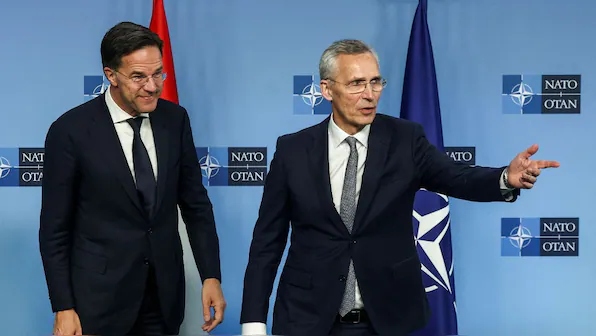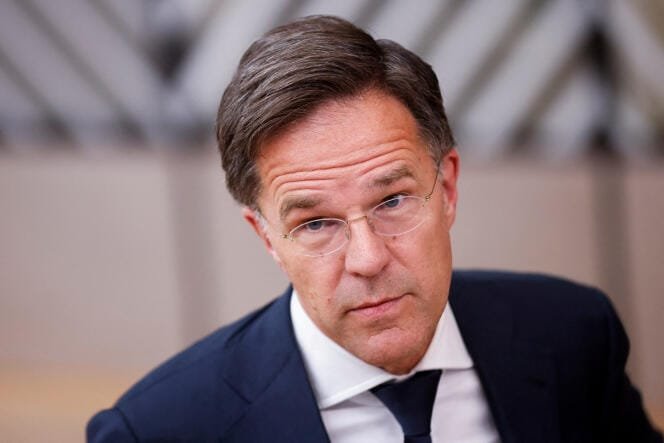Key Hoghlights:
Former Prime Minister of Netherlands, Mark Rutte officially assumes the office of NATO’s new Secretary-General at a time when the alliance is facing the most trying and challenging times. The succession signifies a new leadership at the helm as Rutte now takes charge of an organization which is witnessing one of its most turbulent periods.
Conflict Over Ukraine: Biggest Challenge
At the top of Rutte’s agenda is the Ukraine conflict. As the new Chief of NATO, he must find a way of dealing with support to Ukraine against Russian aggression without escalating into full-scale war. After all, it is the war that has put into sharp focus NATO’s relevance and preparedness, which will call upon Rutte’s outstanding leadership in controlling this delicate situation.

NATO has pledged full support to Ukraine, including militarily assisting the country’s forces with the sharing of intelligence and training for them. But many call for NATO to be much more vociferous and take stronger stances. This becomes a heavy charge on Rutte: how to keep propping up Ukraine without sailing into the red lines that might put NATO in direct confrontation with Russia.
Reconstituting Defense Spending and Capabilities
Another significant test for Rutte will be that the NATO member countries really up their defense spending according to the commitment. As of now, NATO has been laying a lot of stress on its member states in that respect of having at least 2% of their Gross Domestic Product for defense purposes. However, most countries in NATO are still under that target. Therefore, there is a real question of whether NATO has the ability to respond to emergent and new threats effectively.

Rutte will have to take special care to cultivate the relationship with his fellow NATO member countries because the modernization of force is so inherently necessary, especially with emerging warfare. He will be put to the test of his diplomatic skills in getting the fellow member nations to increase their financial investment in the face of economic uncertainty.
Cybersecurity and Hybrid Warfare
The other critical challenges to NATO under Rutte are the rising cyber threats and hybrid warfare. With a growing number of state and non-state actors that use vulnerabilities in cyberspace to disrupt critical infrastructure and spread disinformation, NATO’s strategy against these threats must assume new dimensions.
His role shall include the following: Strongen NATO’s cybersecurity defenses, enhance the sharing of intelligence among members states, develop quick response capacities. He shall also seek to build public awareness of dangers which cyber attacks and disinformation campaigns pose for people’s lives, keeping NATO in high alert in this modern digital battlefield.
China Rise and Shift in Global Power Balance
While the dominant threat from Russia was a characteristic feature of the strategic concerns of NATO, this situation has been changing over the past few years and is now challenged by the emergence of China as an influential force on the global arena. As the military capabilities of China grew alongside its economic influence and assertiveness in such regions as the South China Sea, NATO had to change some strategic tracks and review its security policies beyond Euro-Atlantic space.
Rutte’s will face a challenge of how to maneuver NATO’s policy vis-à-vis China: how to balance dialogue and cooperation on topics like climate change and trade with planning for potential points of contention. An overarching strategy must be developed that keeps in view China’s growing power without making the alliance’s core mission a peripheral aspect in handling the security of the world.
Climate Change as a Security Threat
What was once environmental is now considered a serious security concern within climate change. Resource scarcity, migration patterns, and geopolitical stability are among the issues that are beginning to be known through climate change. Climate consideration will become part and parcel of how Rutte-the new Chief of NATO-will integrate into strategic operations and planning for the alliance.
The partnership has also acknowledged climatic change as one of the key issues, and, with Rutte’s leadership, it can change with a stance that hastens its security role in counteracting climate change. This may be through reducing NATO’s carbon footprint, building up its infrastructures to prepare for extreme conditions to take hold, and building up security measures brought about by conflicts that will come from climate change.
Conclusion
Mark Rutte becomes NATO’s Secretary-General during a critical period of sensitivity for the alliance. The intensifying politics of the Ukrainian conflict, security concerns about defense spending, threats from China’s rise in terms of cybersecurity, and climate change have all become matters of concern that require action. He will assume an influential role during this period in shaping NATO’s reaction to these challenges. As Mark Rutte assumes this role, the world waits to see how successfully he manages this stormy period while moving NATO into an era of security and stability.
For Latest News Updates Click Here
